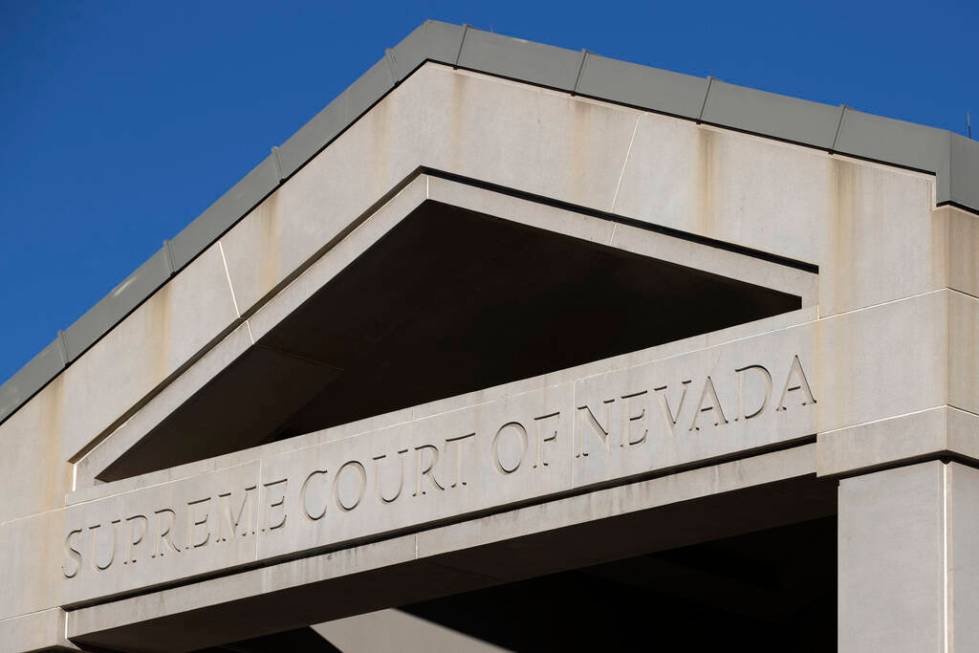Marijuana remains on Schedule I drug list — along with heroin — in Nevada

The Nevada Supreme Court will allow the state Board of Pharmacy to continue classifying marijuana as a Schedule I drug on par with heroin, in a reversal of a district judge’s previous ruling.
In October 2022, District Judge Joe Hardy Jr. ruled that the board’s classification of cannabis as a Schedule I drug was unconstitutional, after the Nevada Legislature in 2019 created the Cannabis Compliance Board to regulate marijuana. That decision was appealed by the Board of Pharmacy, and the Nevada Supreme Court on Monday overturned Hardy’s decision citing procedural issues with the case.
The Schedule I classification, which places marijuana in the same category as heroin and LSD, was challenged in a lawsuit from Antoine Poole and the Cannabis Equity and Inclusion Community organization. Both plaintiffs were represented by the American Civil Liberties Union of Nevada.
In Monday’s ruling, the Supreme Court ruled that the plaintiffs lacked standing to challenge the Board of Pharmacy’s classifications outside of a criminal case.
“As a threshold matter, while the declarations establish that Poole and at least one of CEIC’s members sustained a possession-of-marijuana conviction after medical marijuana was legalized, they do not tie the conviction(s) to the Board’s classification of cannabis as a Schedule I substance,” the justices wrote.
Monday’s ruling was signed by all seven Supreme Court justices.
“I was confident the Nevada Supreme Court would vindicate the Pharmacy Board and reverse the district court’s erroneous ruling,” Brett Kandt, the general counsel for the Board of Pharmacy, said in a written statement.
Athar Haseebullah, the executive director for the American Civil Liberties Union of Nevada, said he was disappointed that the Supreme Court failed to weigh in on the constitutionality of the board continuing to regulate marijuana.
“Until we get a decision on the merits, we plan to continue working with other stakeholders to continue pushing this argument further,” Haseebullah told the Review-Journal.
Haseebullah said the ACLU plans to work with criminal defense attorneys to challenge the legal issue in the future.
In April, the Associated Press reported that the U.S. Drug Enforcement Administration plans to reclassify marijuana as a Schedule III substance, alongside ketamine and some anabolic steroids.
When asked, Kandt declined to say if a federal decision would affect the Nevada Board of Pharmacy’s classification.
Haseebullah argued that no matter what the DEA plans to do, marijuana should not remain on any scheduled drug list in Nevada and should be treated similarly to alcohol or tobacco.
“How can we have a consumption lounge that’s been approved by the state, but we can’t pull this off the state Schedule I list?” Haseebullah said. With the current marijuana classification, people can still be prosecuted for marijuana-related crimes under laws that apply to Schedule 1 drugs, he said.
Poole, one of the lawsuit’s plaintiffs, was found guilty of possession of a controlled substance after recreational marijuana was legalized in Nevada, a conviction that later prevented him from getting a license to become a barber, according to the lawsuit.
Haseebullah argued that only prosecutors and the Board of Pharmacy want marijuana to remain on the Schedule I list.
“All it does is create the ability for DA offices to engage in selective prosecution,” he said.
Contact Katelyn Newberg at knewberg@reviewjournal.com or 702-383-0240.